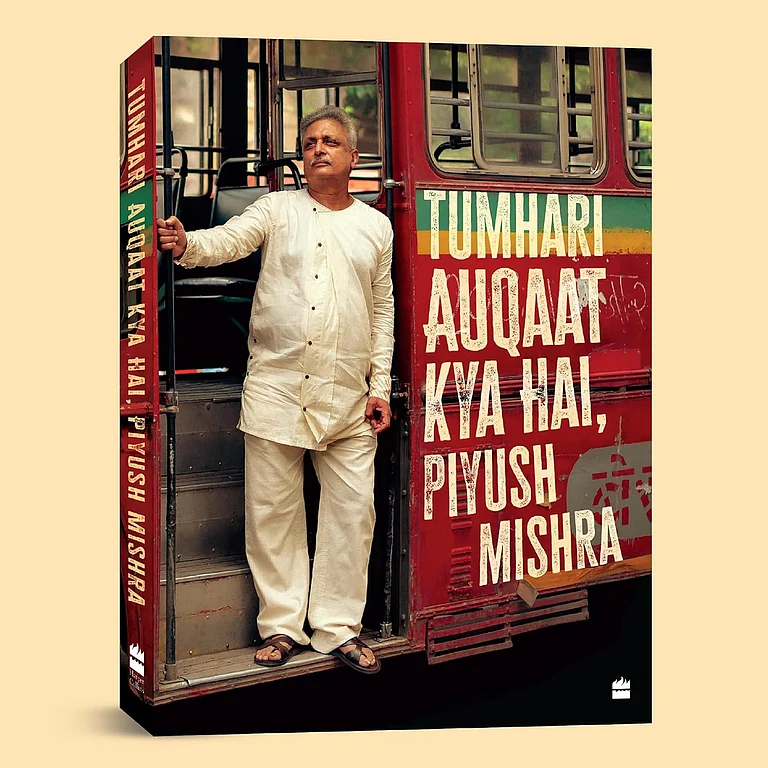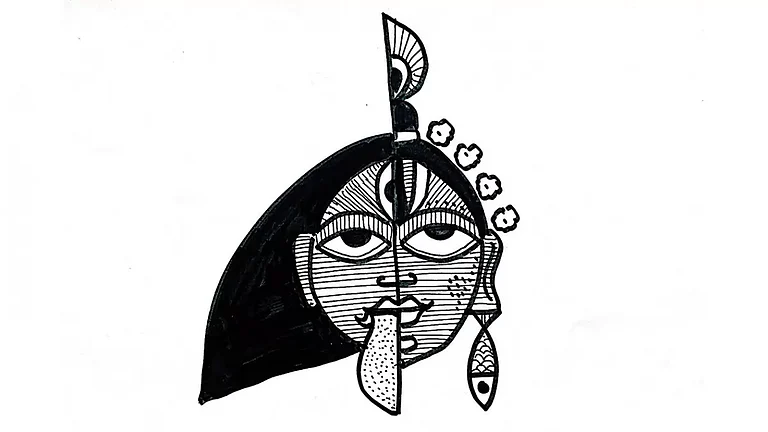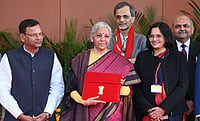
Namita Devidayal’s book chronicles her midlife journey of self-discovery through the Upanishads.
Blending memoir, music, and philosophy, she explores spirituality with humour and inclusivity.
The book offers an accessible, non-dogmatic guide to finding meaning in modern life.
Book Review:
Tangerine: How to read the Upanishads without giving up Coffee
Author: Namita Devidayal
Publisher: Westland Books
It all begins as a mid-life exploration into the Upanishads at a retreat in Rishikesh during a time of internal strife – leading journalist and musician Namita Devidayal on an unexpected journey which few in her life were able to comprehend. When she continues on this path of self-discovery and exploration, she uncovers ancient texts and universal truths embedded in Hinduism – a religion that she has thus far only notionally belonged to, but never identified with.
In Tangerine: How to Read the Upanishads without giving up Coffee, Devidayal thoughtfully blends personal narrative with philosophical inquiry. Known for her earlier work, The Music Room, Aftertaste and The Sixth String of Vilayat Khan, she now turns her gaze inward, with a little help from Hindu philosophy, particularly the Upanishads.
There comes a time in our lives when, despite the external choreography and curation, there is still a void that no amount of material pursuits can fill. In the end, we are all “self-fashioned stories”, as Namita points out – happy, sad, empty and seeking in the same ways. It’s precisely at such a time that she finds her interiority, becoming a spiritual archaeologist, as it were. “I should have been happy, but I was not” was her cue.
Hinduism offers an ocean of texts in the Vedas and Upanishads, and access to the words of magnificent thinkers and translators who decoded them, but the lines between Hinduism and Hindutva or spirituality and religion remain blurred, often deterring those of a secular faith or on the fence, like she was. As she digs deeper into her void and her state of “living the anxiety dream”, she finds an engagement with her inner self and with the universe in its abundance.
Namita’s journey into this oneness is relatable, joyous and full of awe, with music and musical concepts (that she is steeped in) being recurrent motifs in unravelling a larger mystery. Her journey of understanding the self yet detaching herself from it is both moving and inspiring. In a sense, she is both an accidental pilgrim and an intentional one.
The book moves through a non-linear timeline of the four Vedic stages of life — brahmacharya (student), grihastha (householder), vanaprastha (forest dweller), and sanyasa (renouncer) — with chapters that reflect this progression. We see her moving from confusion to clarity, without ever suggesting a retreat from worldly life. Namita doesn’t believe you have to give up avocado toast or smoking, or gluten-free bread in order to pursue a seeker’s path. This honesty is what makes the book so real and accessible, even if you are not invested in the texts she is referring to.
With candour and humour, she shares her learning process and light bulb moments with humility, often looking at science with a philosophical bent. Gentle and inclusive, playful and irreverent, she freely turns the lens of viewing spiritual texts upside down and is wholehearted enough to include references from all faiths. Her engagement with culture and cultural motifs is both deep yet light-hearted, showing us once again that acceptance of one does not mean denouncement of the other. Her text is freely peppered with lyrics from the Beatles, Grateful Dead, Bob Dylan, Nash & Young, Crosby, Still Waters, Pink Floyd and of course, Kabir.
What makes this exploration of Hindu scriptures stand out is that it is not through an academic lens. Although she allows the wisdom of heavy texts to unfold slowly, she does it through her lived experience, connecting the dots even as she comes unravelled in turbulent times. The result is a narrative that feels personal, intuitive and accessible, even to those unfamiliar with Hindu philosophy.
Tangerine reminds you that even as you are navigating real-world problems: careers, marriage, parenthood – there is a fine line between being unified in the self and letting go of it, but if we pay attention, it’s like self-composting. Perhaps this book will unravel the seeker in you, perhaps it will just scratch the surface and make you ponder; perhaps one day you will come back to it, and begin your journey. And when you do, Tangerine can be your tender companion - wise yet kind, witty yet empathic, knowing yet welcoming.
Her companions in this journey include but are not limited to philosophers like Swami Dayananda Saraswati, Vivekananda, Ramakrishna, Ramana Maharshi and Sri Aurobindo; along the way, Kabir, who she affectionately describes as a “ghostly bestie”, offers her intuitive guidance through his very relatable and earthly words and lyrics.
In all, Tangerine is a soothing memoir full of nuanced observations, taking us through a refreshingly non-dogmatic, almost fun exploration of spirituality that is in harmony with contemporary life. It makes one reflect, not just on philosophy, but on the way we live, think, feel, relate, grow and find meaning. Of course, the cover by Saurabh Garge is delicious, but experiencing this book is even more rewarding with every bite.





























